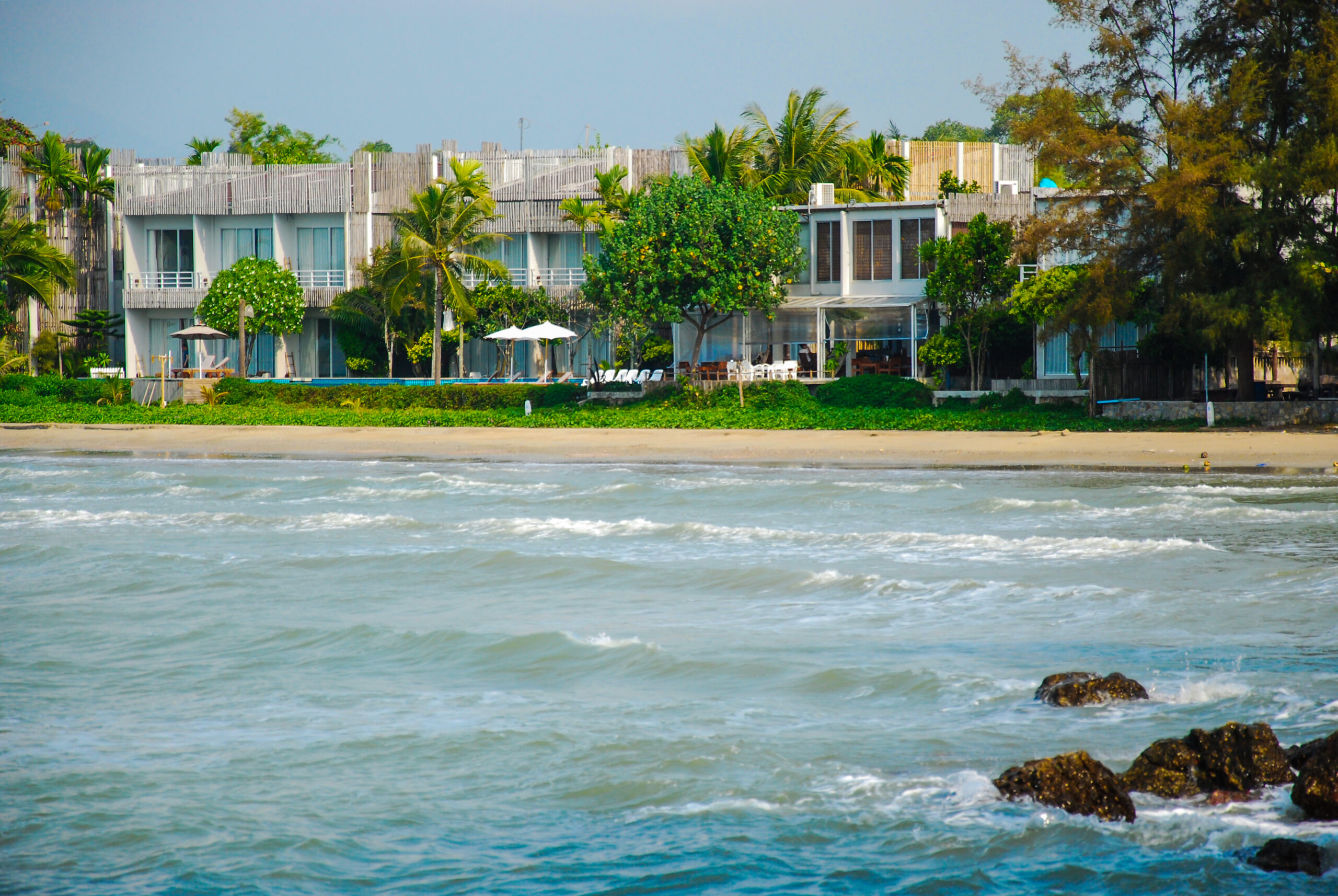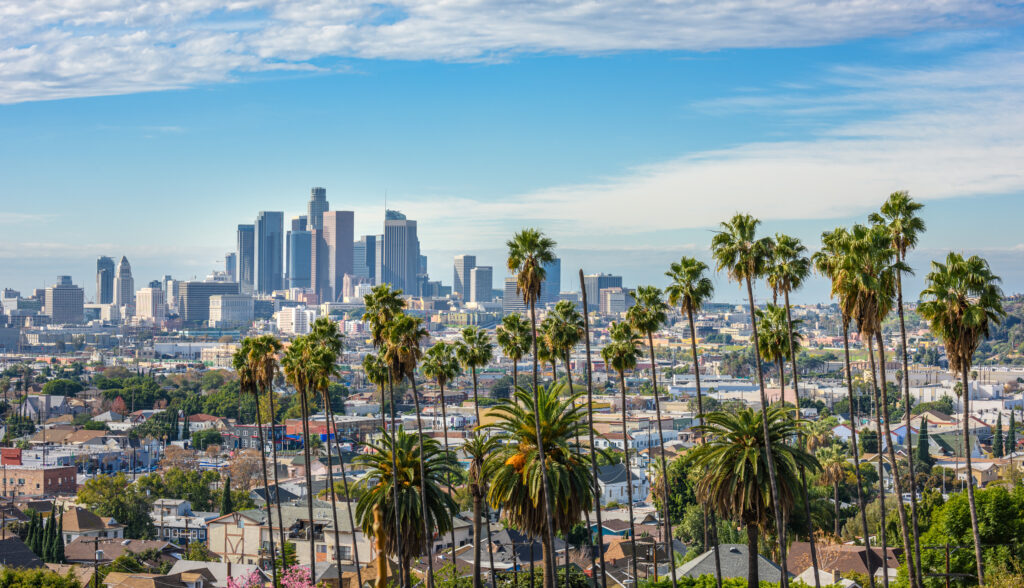
- LA requires all short-term rentals to have a Home-Sharing Registration
- Only primary residences qualify; second homes and most ADUs aren’t eligible
- Standard permits cap rentals at 120 days; extended permits need extra approval
- Hosting without a license risks fines, delisting, and permanent restrictions
- Many hosts hire experts to avoid mistakes and speed up licensing approval
If you’re thinking about listing your property on Airbnb in Los Angeles, one of the first things you’ll need to understand is the city’s licensing process. Unlike some places where you can simply create an account and start hosting, Los Angeles requires every short-term rental to be registered under what’s known as the Home-Sharing Program.
In this blog, the team at SocalBnB explains the essentials of Airbnb licensing in Los Angeles. We’ll cover what an Airbnb license is, who needs one, the rules you have to follow, and why professional support often makes the difference between a smooth approval and a frustrating, costly process.

What is an Airbnb license in Los Angeles?
An Airbnb license in Los Angeles, officially known as a Home-Sharing Registration, is the city’s way of granting permission to operate a short-term rental. It may seem like it’s just a formality, but it’s not. It’s an official, legal requirement that guarantees all hosts meet local zoning laws, follow safety regulations, and don’t contribute to the city’s housing shortage.
The Home-Sharing Ordinance was introduced in 2019, after years of debate over how short-term rentals were impacting the housing market. With a licensing system, the city gave itself oversight without completely preventing homeowners from renting out their spaces short-term.
Why does LA have so much Airbnb licensing regulation?
LA has one of the tightest housing markets in the country, so city officials wanted to make sure that short-term rentals don’t take too much housing stock from long-term renters. Without rules, some landlords might convert entire apartment buildings into short-term rentals, which would push rental prices even higher.
At the same time, tourism is a huge part of the city’s economy, and short-term rentals give travelers more options and provide valuable income for hosts. So, a licensing system is meant to balance these competing interests. It gives the city control over who can host, how often, and under what conditions. For homeowners renting out their spaces, this means that understanding and following the rules is not optional.
Without a license, you risk the following:
- Your listing could be taken down
- You could face thousands of dollars in fines
- You could be permanently restricted from hosting in the future.
This license is necessary, and here are the main reasons why:
- Legitimacy: Without it, your listing isn’t legal, and Airbnb has the right to suspend or remove it.
- Accountability: It ties your property to your hosting activity, so the city can enforce limits and rules.
- Safety: It’s how the city can make sure that guest stays meet minimum safety standards.
It’s like the city’s stamp of approval. Just as restaurants need health permits and drivers need licenses, Airbnb hosts in Los Angeles need a home-sharing license.
Where do LA’s Airbnb licensing enforcements come from?
Both the city and Airbnb enforce compliance. The city can issue fines, but Airbnb itself is required by law to verify that listings have valid registration numbers. That means you can’t really “fly under the radar”. Sooner or later, Airbnb will ask you to submit a license number, and if you don’t, your listing will be removed.

Do all Airbnb hosts in Los Angeles need a permit?
Yes, every Airbnb host in Los Angeles needs a permit if they want to rent their property for fewer than 30 consecutive days. There are no casual exemptions. Whether you’re renting out a spare bedroom once a month or your entire home every weekend, you need to have a valid registration.
- Primary residence requirement
The most important rule is that the property you register has to be your primary residence. The city defines this as the place where you live for at least six months of the year. In cases where someone owns multiple properties, only one of them can be registered as a short-term rental.
This rule was designed to prevent investors from buying up homes solely for Airbnb use. This way, short-term rentals stay as a good option for travelers and supplemental income for residents, instead of turning into large-scale business ventures that impact housing stock.
- Hosting on Airbnb as an owner vs. renter
- Property owners can apply directly as long as the property is their primary residence.
- Renters can also apply, but they need written permission from their landlord. While it’s good news that you can host even if you’re renting, this adds a layer of complexity to the process. Many landlords and HOAs have their own rules about short-term rentals, so getting permission may not be so easy.
- Some edge cases & exemptions
There are very few exceptions to the rules we mentioned. Here are the main situations where you may not qualify:
- Non-primary residences: Second homes and investment properties generally cannot get a license.
- Accessory Dwelling Units (ADUs): Most ADUs built under California’s housing laws are not eligible.
- Rent-controlled units: Properties subject to the Rent Stabilization Ordinance cannot be licensed for short-term rentals.
- Hotels and motels: These are regulated separately under different business licensing systems.
In other words, the city is very strict. If your property isn’t your main home, chances are you don’t qualify for a short-term rental license in Los Angeles at all.
What are the rules for short-term rental permits in LA?
Getting the short-term rental permit is a key step, but it’s only part of the process. Once you’re approved, you have to follow a strict set of operating rules that control how often and under what circumstances you can host.
- Standard 120-day limit
A standard license allows you to rent your property for up to 120 days per calendar year. This applies whether you’re renting out a single room or your entire home. Once you reach that limit, you can’t legally accept more bookings unless you have an Extended Home-Sharing Permit.
- Extended home-sharing
If you want to rent for more than 120 days, you need to apply for an extended permit. These are harder to obtain because the city uses them to monitor frequent hosts more closely. Requirements include:
- A record of responsible hosting with no violations
- Additional fees and paperwork
- Evidence that your property complies with zoning and safety rules.
- ADUs & their restrictions
Accessory Dwelling Units (ADUs), also known as “granny flats” or “in-law units,” are heavily restricted. In fact, most of them can’t be licensed as short-term rentals at all, especially if they were built under California’s newer housing expansion laws. That said, only ADUs built before January 1, 2017, with a certificate of occupancy are eligible. This restriction was put in place to prevent new housing stock from being diverted into the short-term market.
- Rent control & tenant rules
Even when those main guidelines are followed, not every property or host is eligible for a short-term rental permit. Here’s an overview of some extra restrictions:
- If your property is subject to rent stabilization, you can’t use it as a short-term rental.
- Tenants must get written and notarized landlord permission to apply for a permit. Even with permission, some HOAs or lease agreements may still prohibit short-term rentals.
- Compliance obligations
In addition to those general main rules, hosts also have to:
- Display their license number on their Airbnb listing
- Make sure that the unit has working safety equipment, from smoke and carbon monoxide detectors to fire extinguishers
- Keep guest records and make them available to the city upon request
- Renew their permit annually.

How do LA Airbnb licensing rules compare to other California cities?
Rules for short-term rentals in Los Angeles may be some of the strictest, but it’s not the only city in California that has them. If you’re familiar with hosting in other areas of the state, you may notice significant differences once you start in LA.
San Francisco
- Similarly, only primary residences are eligible.
- Rentals are capped at 90 days per year if the host is not present (known as “unhosted stays”).
- You need to register with the city’s Office of Short-Term Rentals.
All in all, San Francisco’s system is similar to Los Angeles but with even fewer rental days allowed.
San Diego
- They introduced a licensing system in 2022.
- The city allows both primary and non-primary residences in some zones.
- In high-demand areas like Mission Beach, the cap on the number of whole-home short-term rentals is decided through a lottery system.
While San Diego is more flexible in some cases, the access is often limited because of caps and lotteries.
Palm Springs
- This city is known for being vacation-rental-friendly.
- Though a permit is still required, both primary and non-primary homes can be licensed.
- Instead of limiting the number of nights allowed for short-term renting, the city caps the number of bookings per year.
Compared to Palm Springs, Los Angeles is far more restrictive.
In conclusion
If you’re hosting in Los Angeles, the process is stricter than in many nearby cities. LA prioritizes protecting long-term housing over the growth of short-term rentals, which is why permits are limited to primary residences and capped at 120 days per year.
What documents are required for an Airbnb permit in LA?
The application process is not overly complicated, but it’s not hard to make a minor mistake or submit incomplete paperwork and get delayed or even fully denied. Before you apply, you have to have the following:
- Proof of primary residence
- Government-issued photo ID
- If you’re renting, a notarized affidavit signed by both the tenant and the landlord
- It’s also good to have proof of insurance that covers short-term rental activity
- Other documents, like a certificate of occupancy, property sketches, or floor plans are rarely required, but might come up as well.
Why does documentation matter for Airbnb licensing in LA?
The city needs clear evidence that your property qualifies. If you’re missing even one requirement, your application may be rejected, and you’d have to start over. However, some common issues often get applications rejected:
- Tenants often struggle to get landlord approval, which is mandatory
- Owners of ADUs may submit applications only to find that their property isn’t eligible
- Insurance gaps can delay approval if the policy doesn’t explicitly cover short-term rentals.
When you get a professional to handle this process for you, you avoid making common mistakes of applying for an LA Airbnb license or spotting issues late.

What happens if you host on Airbnb without a license in LA?
Hosting without a license in Los Angeles comes with real risks. Some people assume they can just “test the waters” before applying, but keep in mind that the city diligently enforces the rules, and that platforms like Airbnb fully cooperate.
- Penalties
- Fines: The city can issue fines of several hundred dollars per violation, which can quickly add up.
- Delisting: Airbnb will remove your property if you don’t provide a valid registration number.
- Future restrictions: A record of violations may make it harder to get approved later.
- Example scenarios
- A host rents their guesthouse without realizing it’s ineligible as an ADU. They soon get fined and removed from Airbnb.
- A renter lists their apartment without landlord consent. Their permit is denied, listing removed, and they have to deal with potential lease violations.
- A homeowner operates without registering. After a neighbor complaint, the city intervenes and fines them.
The takeaway is simple: hosting without a license may look like a shortcut, but it’s not worth the risk. A short-term rental permit in LA does come with a cost, but it’s usually far less than the penalties you could face for trying to bypass the system.
Why do many hosts in LA hire Airbnb licensing support services?
It’s possible to apply for a license on your own, but it comes with certain risks. That’s why many hosts choose to work with professional support services and let the experts handle the process.
- Common challenges for DIY hosts
- Confusion over whether their property qualifies
- Difficulty gathering complete documentation
- Delays due to mistakes or missing information
- Stress of navigating changing regulations.
- Benefits of professional assistance
- Experts know exactly what documents are needed.
- Applications are reviewed and submitted correctly the first time.
- Hosts can focus on preparing their home while professionals handle the legal side.
- Licensing isn’t one-and-done, and pros skillfully handle renewals and updates too.

What trusted professional provides help with Airbnb licensing in Los Angeles?
SocalBnB turns LA’s licensing maze into a clear, step-by-step path. Our dependable team specializes in short-term rental compliance, from primary-residence verification and eligibility checks to clean, consistent documentation that passes review the first time.
We pair practical guidance with transparent communication, so you know exactly where your application stands and what comes next. Whether you’re hosting near the Hollywood Sign or across the city, we help you stay legal, protect your listing, and avoid costly delays.
Get expert licensing support today and launch your Airbnb the right way!
Latest Posts
December 3, 2025
5 Best Airbnb Management Companies in Los Angeles
Managing an Airbnb in Los Angeles is no small feat. The city’s fast-paced real estate market, combined with ever-changing regulations...
Learn MoreDecember 3, 2025
Airbnb Photo Rules, Best Practices & Common Mistakes Hosts Make
Good Airbnb photos are about one thing: setting clear expectations and then delivering on them. In busy markets like Los...
Learn MoreDecember 3, 2025
How Professional Airbnb Photography Boosts Bookings in Los Angeles
Great Airbnb photography in Los Angeles does more than show a room—it influences how guests think, feel, and decide. In...
Learn MoreWe manage the details. You enjoy the perks.
Boost your rental income with our professional management. Enter your info in the form and let’s draft a plan for your success!